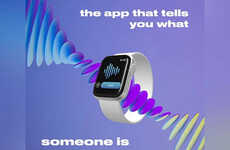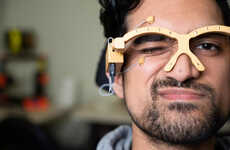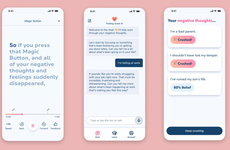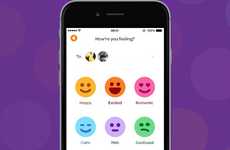
The Emotient App Will Let Google Glass Read Human Emotion
Michael Baxter — March 11, 2014 — Tech
The Emotient app is adding a completely new dimension to the already incredibly powerful Google Glass. The app will allow users to read human emotions with the app just by looking at them.
The Google Glass revolution is on its way and every day it's becoming more and more clear that this will be a staple in regular culture very soon. The Emotient app is making its case as one of the most interesting apps to be available for the platform with its emotion-tracking interface.
The app operates by reading facial expressions with the camera on the glasses and processing them through the app itself. Emotient also goes past the ordinary emotions that people would expect like anger and happiness and delves deeper into emotions like disgust, frustration and confusion.
The Google Glass revolution is on its way and every day it's becoming more and more clear that this will be a staple in regular culture very soon. The Emotient app is making its case as one of the most interesting apps to be available for the platform with its emotion-tracking interface.
The app operates by reading facial expressions with the camera on the glasses and processing them through the app itself. Emotient also goes past the ordinary emotions that people would expect like anger and happiness and delves deeper into emotions like disgust, frustration and confusion.
Trend Themes
1. Emotion-recognizing Technology - Companies can develop emotion-tracking interfaces to provide personalized consumer experiences.
2. Wearable Technology as Biometric Sensors - Integrating biometric sensors in wearable technology opens new opportunities for advanced data collection and analysis.
3. Emotional Analytics - Incorporating emotional analytics into market research can provide valuable insights into consumer behavior and decision-making.
Industry Implications
1. Healthcare - Emotion-recognition technology can assist healthcare professionals in identifying patient needs and improving treatment outcomes.
2. Retail - Wearable technology with emotion-tracking interfaces can provide retailers with valuable insights into customer preferences and demand.
3. Advertising - Emotional analytics can help marketers create more effective advertising campaigns and personalized messaging for targeted audiences.
2.3
Score
Popularity
Activity
Freshness























